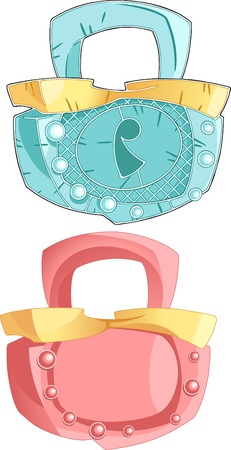1. Understanding Diarrhoea and Vomiting in Babies
Tummy upsets, including diarrhoea and vomiting, are common concerns for parents across the UK, especially during a baby’s first year. These symptoms often arise when a baby’s delicate digestive system reacts to viral or bacterial infections, with rotavirus being a frequent culprit. In some cases, tummy bugs may be picked up at nursery or playgroups, particularly during winter months when such illnesses are more prevalent.
Diarrhoea is usually identified by frequent, watery stools that differ from your babys normal pattern. Vomiting involves forcefully bringing up milk or food. Both symptoms can appear suddenly and may last a few days. Alongside these, you might notice your little one seems unsettled, has a reduced appetite, or appears tired and irritable.
It’s important to remember that mild episodes of diarrhoea and vomiting are very common in UK babies and typically resolve without complications. However, understanding the underlying causes and recognising the signs early can help you manage your baby’s health with confidence and seek support if needed.
2. NHS Recommendations for Keeping Your Baby Hydrated
When your baby is experiencing diarrhoea and vomiting, keeping them well-hydrated becomes a top priority. The NHS provides practical advice tailored to babies of different ages and feeding methods, ensuring your little one receives the fluids they need for recovery.
Fluid Intake Guidance: What the NHS Recommends
If you are breastfeeding, continue to do so as often as your baby wants. Breast milk not only provides hydration but also contains antibodies that help fight infection. For formula-fed babies, offer smaller amounts of formula more frequently. Avoid giving plain water to babies under 6 months unless specifically advised by your healthcare professional, as this can disrupt their delicate electrolyte balance.
Signs Your Baby Is Getting Enough Fluids
| Sign | What to Look For |
|---|---|
| Nappies | At least 6 wet nappies in 24 hours (for babies under 6 months); urine should be pale yellow, not dark or strong-smelling. |
| General Appearance | Baby is alert, responsive, and their mouth is moist. |
| Crying | Tears present when crying; dry eyes may suggest dehydration. |
| Fontanelle (soft spot) | The fontanelle should be flat or slightly curved inward; a sunken fontanelle can be a warning sign of dehydration. |
Adjustments for Feeding During Illness
If your baby refuses large feeds due to feeling unwell, offer small sips or feeds more frequently—every 10 to 15 minutes if necessary. Do not force-feed or pressure your baby, but do encourage regular feeding attempts. For older babies on solids, temporarily stop solid foods until vomiting settles, then reintroduce bland options like rice or toast slowly alongside usual milk feeds.

3. Supportive Home Care: Soothe and Comfort
When your baby is suffering from diarrhoea and vomiting, offering comfort and reassurance at home is just as vital as medical advice. Here are some supportive strategies recommended by the NHS and widely embraced by parents across the UK to help soothe your little one through this challenging time.
Gentle Diet Tips
If your baby is breastfed or formula-fed, continue to offer regular feeds. Breast milk provides essential hydration and immune support, while formula can be offered as usual unless advised otherwise by your GP or health visitor. For older babies who have started solids, keep meals simple—think plain rice, mashed banana, or well-cooked carrots. Avoid rich, sugary, or fatty foods until their tummy settles.
Nappy Changes and Skin Care
Frequent diarrhoea means more nappy changes. Use fragrance-free wipes or simply water and cotton wool to clean your babys bottom gently. Pat dry rather than rub to avoid irritation. Apply a thin layer of barrier cream at each change to protect delicate skin from soreness or nappy rash—a common concern in British homes during bouts of tummy upset.
Hygiene Routines
Good hygiene is crucial to prevent the spread of infection within the family. Always wash your hands thoroughly with soap and warm water after each nappy change or when cleaning up vomit. Disinfect changing mats and any surfaces your baby may come into contact with. Encourage siblings and other family members to do the same, especially before meals.
Keeping Spirits Up During Illness
Illness can leave both you and your baby feeling weary. Offer plenty of cuddles and soothing words; your calming presence reassures them that they’re safe and cared for. Gentle rocking, singing soft lullabies, or reading familiar stories can help distract from discomfort. If possible, keep routines predictable—familiar naps, bath times, and bedtime rituals all provide a sense of security for your little one amidst the disruption.
When in Doubt
Remember, if you’re ever unsure about how your baby is coping, don’t hesitate to reach out to your local GP surgery or NHS 111 for guidance—British parents are never alone in navigating these tricky moments.
4. When to Seek Medical Advice
As a parent, it’s natural to worry when your baby is unwell. While mild diarrhoea and vomiting are often manageable at home, there are certain red flag symptoms that mean you should seek help promptly. According to NHS guidelines, knowing what to look out for can make all the difference in keeping your little one safe.
Key Red Flag Symptoms
| Symptom | Description |
|---|---|
| Signs of dehydration | Fewer wet nappies, sunken fontanelle (soft spot on baby’s head), dry mouth, no tears when crying, drowsiness or unusual sleepiness |
| Persistent vomiting | Your baby cannot keep any fluids down or vomits repeatedly over several hours |
| Blood in stool or vomit | Any sign of blood should be checked by a healthcare professional immediately |
| High fever | A temperature above 38°C if under three months, or above 39°C if aged three to six months, warrants urgent assessment |
| Lethargy or unresponsiveness | If your baby is unusually difficult to wake or not responding normally, seek help straight away |
| Severe abdominal pain or swelling | Crying more than usual and seeming in pain, or if their tummy looks swollen and hard |
How to Access NHS Support
If you’re ever unsure or worried about your babys symptoms, support is available:
- Your health visitor: Can provide advice and reassurance for non-urgent concerns about feeding, hydration, and general wellbeing.
- NHS 111: Call 111 (free from any phone) for urgent but non-life-threatening advice. The trained staff will guide you on what steps to take next.
- Your GP surgery: Contact your practice during opening hours if your baby’s symptoms are getting worse or not improving after 48 hours.
- A&E (Accident & Emergency): If your baby shows any of the red flag symptoms listed above, especially signs of dehydration, lethargy, or blood in stool/vomit, go to your nearest A&E immediately or call 999 in an emergency.
Trust Your Instincts as a Parent
No one knows your baby better than you do. If something doesn’t feel right – even if you’re not sure exactly why – it’s always best to get checked. Early intervention can prevent complications and give you peace of mind during this challenging time.
5. Preventing the Spread: Hygiene and Family Wellbeing
When your baby is suffering from diarrhoea or vomiting, it’s natural to worry not just about their health, but also about protecting the rest of your family. Practising good hygiene at home is essential for minimising the risk of dehydration, stopping germs from spreading, and supporting your own mental wellbeing as a parent.
Simple Household Practices for Protection
Washing your hands thoroughly with soap and warm water is one of the most effective ways to prevent bugs from passing between family members. Make handwashing a regular habit after every nappy change, after cleaning up vomit, and before preparing any food. Encourage older siblings to join in, turning it into a fun routine with songs or counting games to make sure everyone washes for at least 20 seconds.
Keeping Surfaces Clean
Bacteria and viruses can survive on surfaces for hours. Wipe down changing mats, bathroom surfaces, door handles, toys, and highchairs regularly with disinfectant. Use separate towels for your poorly baby and change them frequently. If you use reusable cloths or muslins, wash them on a hot cycle to kill germs.
Laundry Tips
Soiled clothes and bedding should be washed separately at the highest temperature suitable for the fabric. Handle soiled items carefully—wearing gloves can help protect your skin—and wash your hands afterwards.
Preventing Dehydration in the Family
If other children or adults develop symptoms, follow NHS hydration advice: offer regular sips of water or oral rehydration solutions if needed. Avoid sharing cups, bottles, cutlery, or dummies while anyone in the house is unwell.
Parental Wellbeing Matters Too
Caring for a poorly baby can be exhausting and emotionally draining. Try to rest when possible, accept help from friends or family if offered, and remember that asking for support is a sign of strength—not weakness. Looking after yourself ensures you’re able to care for your little one as they recover.
6. NHS-Approved Treatments and What to Avoid
When your baby is experiencing diarrhoea and vomiting, it’s natural to want to do everything you can to help them feel better. However, not all treatments are safe or effective. Here’s what the NHS recommends for managing these symptoms at home, as well as some common remedies UK parents should avoid.
NHS-Recommended Approaches
1. Focus on Hydration
The most important step is to keep your baby well-hydrated. Offer small amounts of fluids frequently – breast milk or formula for infants, and water or oral rehydration solutions (ORS) for older babies as advised by your GP or health visitor. ORS are available from local pharmacies and contain the right balance of salts and sugars to help replace lost fluids.
2. Maintain Regular Feeding
If your baby is bottle-fed or breastfed, continue their normal feeding routine. Don’t dilute formula or stop breastfeeding unless specifically told by a healthcare professional. Keeping up with feeds helps provide comfort and essential nutrients during recovery.
3. Monitor for Signs of Dehydration
Watch out for signs such as fewer wet nappies, dry mouth, lethargy, or sunken eyes. If you notice these symptoms, seek advice from your GP or call NHS 111 promptly.
What to Avoid: Unsafe Home Remedies
1. Over-the-Counter Anti-Diarrhoeal Medicines
Medicines like loperamide (Imodium) or bismuth subsalicylate (Pepto-Bismol) are not suitable for babies and can be dangerous. Only use medicines prescribed by your doctor specifically for your child’s age group.
2. Sugary Drinks and Fruit Juices
Avoid giving squash, fizzy drinks, fruit juices, or other sugary beverages as they can worsen diarrhoea and may cause further dehydration.
3. Herbal Remedies and Unverified Supplements
Some herbal teas and supplements claim to soothe upset tummies but are not regulated for safety in infants. Always check with your health visitor or pharmacist before trying anything new.
When in Doubt, Ask for Advice
If you’re ever unsure about a treatment or remedy, consult your GP, health visitor, or call NHS 111 for guidance. The safest way forward is always to rely on NHS-approved advice tailored for babies here in the UK.
7. Looking After Yourself: Parental Wellbeing and Support
Caring for a baby with diarrhoea and vomiting can be exhausting, both physically and emotionally. It’s completely normal to feel anxious, worried, or even overwhelmed during these times. Remember, your own wellbeing is just as important as your child’s recovery. Gentle reminders to care for your mental health include taking small breaks when possible—ask a partner, family member, or friend to watch your baby while you have a cuppa or step outside for some fresh air. If you find yourself feeling persistently low, stressed, or unsure about how to cope, don’t hesitate to reach out to your GP for guidance and support. Local parent support groups—whether in person at children’s centres or online through trusted UK parenting forums—can also offer encouragement, practical advice, and reassurance that you’re not alone. Prioritising your own rest, nutrition, and emotional needs will help you stay resilient, so that both you and your baby can focus on recovery together.


